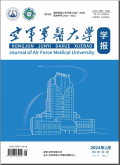Cooperation between clinical experts and methodologists improves integrity of guidelines
It seems impossible to make an absolutely integrate,impartial,evidence-based and unbiased clinical guideline.What we can do is to take all measures to reduce potential bias.In theory,the methods and suggestions mentioned in Jack Hirsh and Gordon Guyatt[1] article could reduce bias in the process of guideline making to some extent,therefore,which should not be denied,at least they pointed out the direction to minimising the potential bias for us.As a prerequisite for evidence based medicine,medicine based evidence is in overwhelming status in the clinical practice.Although guideline making should follow the principles of evidence-based medicine,sometimes there exists paradox between evidence base with practice base.It is difficult to evaluate the trade-offs between the degree of bias and required resources including data and evidences from clinical trials for a methodologist without sufficient medical training and clinical experience[2].Just as what is stated in Hai-feng Li paper,guidelines are evidence based,but they are not always practice-based[3].
4
2013-09-09(万方平台首次上网日期,不代表论文的发表时间)
共1页
3




